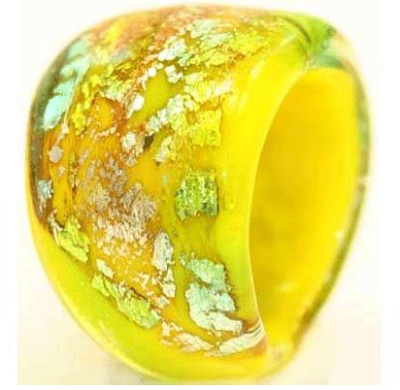- Don't overcook your eggs unless you are serving Green Eggs and Ham. 8-10 minutes at a gentle boil is plenty (the moister the yolk, the less mayo you will need).
- Place the eggs in the water when you set the pot on to boil and not after the water is boiling, or you risk cracking the shells. Better yet, use eggs at room temperature.
- Dunk the eggs in an ice bath after removing from the water to stop the yolks cooking any further.
- In terms of egg salad, toast your bread and it won't be soggy (especially if you are packing lunch for school or work).
25 August, 2009
The importance of not overcooking your boiled eggs
05 August, 2009
Summer bliss

I love Jamba Juice. Actually, I love most kinds of all-fruit smoothies.
29 July, 2009
Are you there, God? It's me, [name]
28 July, 2009
More on the U.S. rate of C-sections
- "More C-sections, more problems" in the LA Times (May 17, 2009):
Once reserved for cases in which the life of the baby or mother was in danger, the cesarean is now routine. The most common operation in the U.S., it is performed in 31% of births, up from 4.5% in 1965.
With that surge has come an explosion in medical bills, an increase in complications -- and a reconsideration of the cesarean as a sometimes unnecessary risk.
It is a big reason childbirth often is held up in healthcare reform debates as an example of how the intensive and expensive U.S. brand of medicine has failed to deliver better results and may, in fact, be doing more harm than good.
- "Can we please stop blaming women for C-sections?" in RHRealityCheck.org (January 21, 2009):
It's true: scheduled, repeat cesareans are not "medically indicated," at least not according to the research evidence. After a cesarean birth, a woman is left with a scar on her uterus, and there's a small risk of that scar rupturing in subsequent deliveries, which has led to concerns about vaginal birth after cesarean (VBAC). But a VBAC baby has excellent odds—the risk of severe harm or death is 1 in 2000—the same odds as for a baby born vaginally to a first-time mother.
- Births: Final data for 2006 (pdf) by the CDC National Center for Vital Statistics Reports, v.57 No.7 (January 7, 2009):
The cesarean delivery rate rose 3 percent to 31.1 percent of all births, another record high. The cesarean rate has climbed 50 percent since the 1996 low.
- "A risky rise in C-sections" in U.S. News & World Report (March 28, 2008):
Obstetricians' rising malpractice insurance premiums may play a role, too. Individual doctors in many states now pay upwards of $100,000 a year for coverage, a figure that can spike if they're sued for something that goes wrong during labor, regardless of the legal outcome. "If there's no labor, there can be no lawsuit related to labor," says Flamm, who points out wryly that parents rarely sue over unnecessary C-sections.
- Medline Plus (National Library of Medicine and National Institutes of Health)
- Women's Health (Dept. of Health & Human Services)
- American College of Nurse Midwives
- Childbirth Connection
- March of Dimes
- RH Reality Check
WOW. Refusal to have C-section = child abuse and neglect?!

Women take note! Especially those of you of child-bearing age.
Where we part company is his discussion of whether V.M.'s [the mother's] refusal to consent to a cesarean section (c-section) can, as a matter of law, be considered an element of abuse and neglect.
On the record before us, we do not agree that the issue need be decided.
I concur in the result reached as to both V.M.[the mother] and B.G. [the father]. I am of the view that even with the limited concession of DYFS as to the narrow utility of V.M.'s refusal to have a c-section, the issue remains extant and requires a level of judicial scrutiny.
Consideration of V.M.'s refusal to submit to a c-section, in my view, is improper and beyond the legislative scope of the child protective statutes.
24 July, 2009
Fifty-three percent of those questioned in the poll view Palin negatively, with four in 10 holding a positive view of her. The survey is the second this week, following a Fox News/Opinion Dynamics poll released Thursday, to find more than half of all Americans viewing Palin in an unfavorable light.
The ABC News/Washington Post survey suggests that there is doubt about Palin's leadership skills and her understanding of intricate issues. Fifty-seven percent say they don't think Palin understands complex issues, and 54 percent do not feel she is a strong leader.
22 July, 2009
The power of wonder
We are 40 years older now, we Americans. And many things have changed.The final Apollo mission came home before Nixon resigned. Skylab fell to Earth. Challenger disintegrated going up, Columbia coming down. Kennedy's New Frontier ethos — space as a kinder, gentler Manifest Destiny — slouched into the "Alien" catchphrase: "In space, no one can hear you scream."
Today, the reasons for Americans to pay attention to the ground, rather than the heavens, can be rattled off like a parody of a Billy Joel song. Terrorists. Global warming. Swine flu. Economic collapse. Nukes in North Korea and mass shootings in the heartland.
Walk past an actual Apollo landing module and think: How in heaven did we land on the moon in something like this? It looks like a foil-and-tarpaper float built for a homecoming parade.And then, if you can get to the front of the circle of people ringing it, stand in front of the actual Apollo 11 command module, Columbia.Then pause, and listen to the voices around you.
"... actual re-entry capsule ...""... Collins stayed in the command module ..."
"... looks like a beehive on the bottom ..."
"... can't believe someone did that ..."In German and Chinese, Japanese and Hindi and, yes, American English, they marvel still at this conical piece of mottled metal that traveled so far. They pose for pictures, shoot video.
Some middle of the week space shenanigans
21 July, 2009
Space baubles




20 July, 2009
A plug for The Intersection of science and policy (via communication)
"Viva Pluto!"
"Stop Planetary Discrimination!"
"Pluto Was Framed!"
"Dear Earth: You Suck. Love, Pluto."
"Pluto is still a planet. Bitches."
So read a small sampling of the defiant T-shirt and bumper sticker slogans that emerged in late 2006 after the International Astronomical Union (IAU), meeting in Prague, opted to poke the public with a sharp stick. The union's general assembly voted to excommunicate the ninth planet from the solar system, thus abruptly stripping Pluto of a status as much cultural, historic, and even mythological as scientific.
In the astronomers' defense, it had become increasingly difficult to justify calling Pluto a planet without doing the same for several other more recently discovered heavenly objects--one of which, the distant freezing rock now known as Eris (formerly "Xena"), turns out to be larger. But that didn't mean the experts had to fire Pluto from its previous place in the firmament. In defining the word "planet," they were arguably not so much engaged in science as a semantic exercise, meaning that instead of ruling Pluto out, they could just as easily have ruled a few new planets in, as a group of scientists, historians, and journalists had in fact proposed. But the IAU rejected that compromise for a variety of technical reasons: Pluto is much smaller than the other eight planets; it orbits the sun in a far more elliptical manner; its gravitational pull is not strong enough to have "cleared the neighborhood around its orbit" of other significant objects and debris…
People were aghast. Not only did they recoil at having to unlearn what they had learned as children, and perhaps the chief thing they remembered about astronomy. On some fundamental level their sense of fair play had been violated, and their love of the underdog provoked. Why suddenly kick Pluto out of the planet fraternity after letting it stay in for nearly a century, ever since its 1930 discovery? "No do-overs," wrote one cartoonist.
Soon websites started sprouting up encouraging people to vote on Pluto's status and override the experts. A Facebook group entitled "When I was your age, Pluto was a planet" drew a million and a half members. New Mexico, the state where Pluto's discoverer, Clyde Tombaugh, had built an astronomy program, took particular offense. Its House of Representatives voted unanimously to preserve Pluto's planethood and named March 13, 2007, "Pluto Planet Day." Surveying it all, the American Dialect Society selected "plutoed" as its 2006 word of the year--as in, "you plutoed me." The society offered this definition: "to demote or devalue someone or something, as happened to the former planet Pluto when the General Assembly of the International Astronomical Union decided Pluto no longer met its definition of a planet."
Even many scientists were upset. "I'm embarrassed for astronomy," remarked Alan Stern, the chief scientist on NASA's New Horizons mission to Pluto and beyond... (keep reading this excerpt)
Space week

14 July, 2009
Gentle giant
24 June, 2009
Toe candy

23 June, 2009
Not your mother's mellow yellow







22 June, 2009
Does this fragrance make me look fat?
First and foremost, in my humble opinion, taste and scent are intricately tied to one another — food would not be nearly as appealing and enjoyable without it. In fact according to one scientist-turned-CEO cited in a recent New York Times article, as much as 80% of what we perceive as taste might really be smell. Any sommelier or wine coinnesseur worth her/his salt, for instance, will tell you breathing in the bouquet and/or exhaling on the finish is so important to properly appreciating a fine wine. I swear to you it is true, based on first hand experience with this flavor-enhancing behavior almost every night. My most memorable and poignant example of this was in Portugal during the Euro 2004; I tasted the smell of olives in a vinho tinto we enjoyed late one night upon returning to our country pousada from a day spent driving through the vast stretches of olive trees during the drive to and from Aveiro.
Next, of all the five senses, smell is the one most closely linked with memory. Have you ever been somewhere else, when a wayward smell immediately transports you back in time to corn dog day in your elementary school cafeteria, summer camp after a light shower, or the weekly visit to a beloved elderly family member in assisted living, etc.? A few years back there was an interesting study published in the British Royal Society biology letters, which noted the roles memory and smell play in elephants' ability to keep tabs on family members near and far. I can imagine how liberating this might be if I had a similar ability to keep tabs on Big and Little CL at the neighborhood park around 11am every Sunday.
Many animals of course use their sense of smell to guide them, sometimes over considerable distances, to a member of the opposite sex ripe for mating. And this brings me to smell as a vehicle for bodily communication, or smell's sensual and sexual sides. I recently brought your attention to one study that suggests women are more capable than men of sniffing out biologically relevant information from sweat. As gross as that may at first sound, odor and the ability to detect it play a crucial role in mate selection, and thus reproduction; this is a biological function of hormone and pheromone production seen in many (most?) animals.
Think about it, body odor is either a turn-off or a turn-on, and a strong one at that. Humans are the only species of which I'm aware that intentionally apply scents in order to be more sexually attractive — dogs do not roll in deer feces to attract other dogs. The company who can develop and bottle human pheromones will make a killing (ever see that X-File gender bender episode?), and those Axe commercials would have you believe that company already has. Is it any wonder perfume is a multi-billion dollar business? And that doesn't include aromatherapy or the myriad other personal care product companies that spend fortunes on developing or acquiring fragrances for their lotions, shampoos, lip glosses, etc.
With all of this in mind, I am pretty sure I'm advertising to Mr. CL that I'm open for business when I wear perfume (personal favorites are Lauren and No. 5, oldies but goodies). Having children has altered the frequency with which I apply fragrance; I don't spritz and dab as regularly as I used to because a mother's scent is very important in the early bonding with baby (and vice versa). My childhood memories of my own mother are tied to Jungle Gardenia, and I can't help but think of her when I smell the real flower.
So, what does your scent say about you —
Can you bring home the bacon and fry it up in a pan? I won't hate you because you're Beautiful, smart and a good cook.
Do you have a Passion for Poison?
What's your Pleasure, or has it been an Eternity?
19 June, 2009
Royal Ascot 2009 update
More hat images from the event at the link above; other outlandishly funny ones at Zimbio and a showstopper at TeamSugar — oh, you'll know it when you see it. (Note to self: do not wear g-string/dress combo on a blustery day.)
17 June, 2009
I wanted to give you yellow, but instead it's Barbie


15 June, 2009
Magnesium rocks
"Menstrual migraine is generally severe, lasts longer, recurs more frequently, results in greater disability and is more resistant to therapy than nonmenstrual migraine." -SD Silberstein and J Goldberg in Journal of Reproductive Medicine 2007 Oct; 52(10):888-95.


- Calcium-magnesium supplement containing 300-400 mg of Mg every other day
- Daily multivitamin that contains the max for riboflavin and low to no Mg
- Drink lots of water, eat a balanced diet, exercise, and avoid any known triggers
- Magnesium-rich foods (pumpkin seeds, spinach, soybeans, Alaskan salmon and halibut, black beans, avocados) during times when I know I'm prone to getting headaches.
11 June, 2009
Grab bag: Lip gloss

Whatcha know 'bout me? My lip gloss is poppin'.

